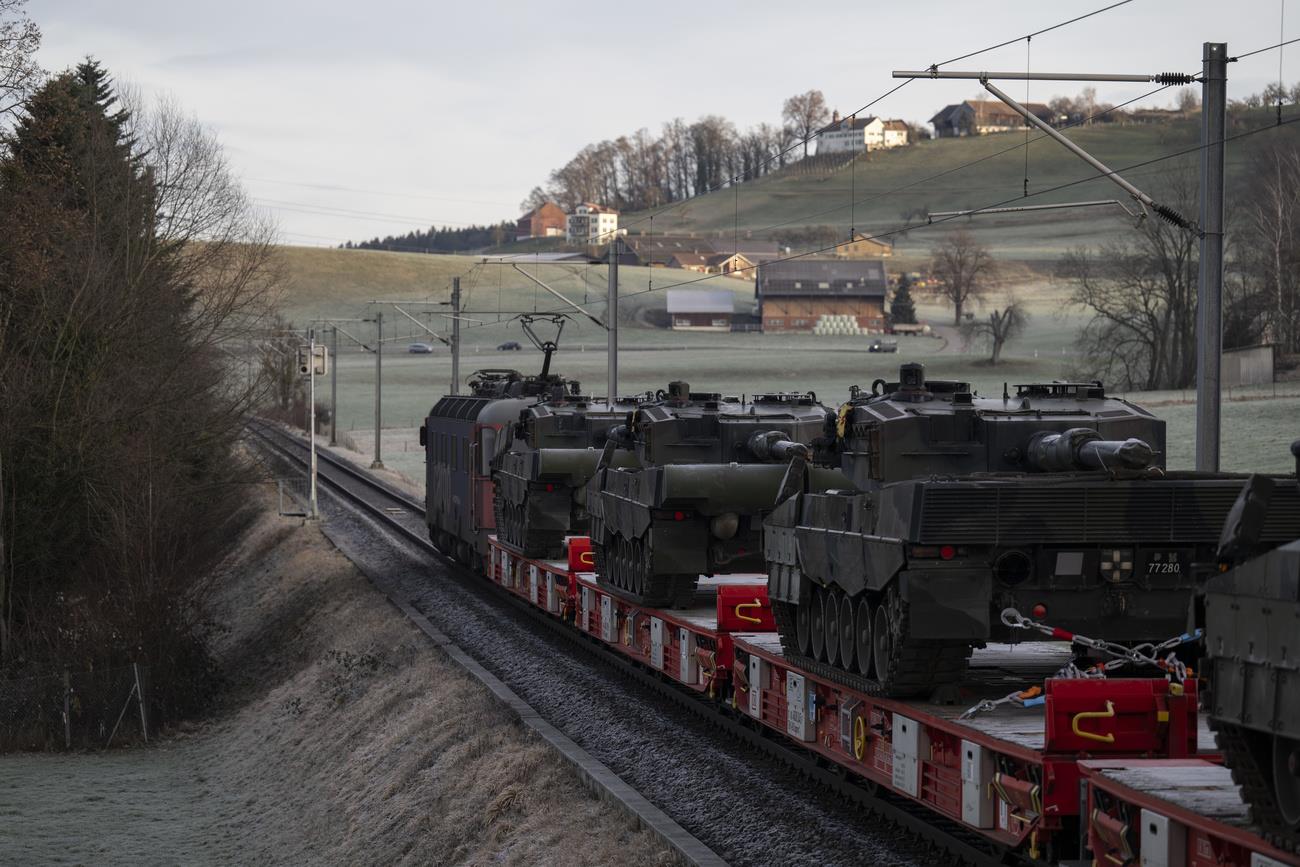
Switzerland's Declining Military Equipment Sales Amid Global Arms Surge
- Français fr Pourquoi le chiffre d'affaires de l'armement suisse baisse alors que le monde s'arme Read more: Pourquoi le chiffre d'affaires de l'armement suisse baisse alors que le monde s'arme Italiano it Calano le vendite di materiale militare in Svizzera Read more: Calano le vendite di materiale militare in Svizzera
The world spent $2,443,000,000,000 on armaments last year, almost CHF2.3 trillion. As demand increases, so do the sales of defence companies that manufacture all kinds of military equipment.
In Switzerland, however, sales are falling. And this by more than a quarter, down 27%, to be precise. Arms exports from Switzerland totalled just under CHF700 million in 2023.
On the one hand, this has to do with Switzerland's strict export regulations. On the other hand, Qatar has also contributed to the decline in sales. The small Persian Gulf country which hosted the FIFA World Cup in 2022, had taken extensive security measures. Specifically, it purchased air defence systems to protect the multiple stadiums. This order of CHF120 million which was placed prior to the FIFA World Cup caused part of the sales percentage drop between the years.
Strict export regulations“The sales departments of Swiss companies have significantly less contracts,” says Matthias Zoller from SWISS ASD, aeronautics, security and defence, the association of internationally active security and defence technology and aviation companies under the umbrella of Swissmem. The companies manufacture both military and civilian products.
Political tightening on export regulations can also be felt in the industry. For example, the German company Rheinmetall is producing less products in Switzerland, such as ammunition for Gepard tanks. This is because since 2021 Switzerland has banned the export of military materials to belligerent countries. The ban also applies to countries that could possibly pass the materials on to other countries.
“Our European neighbours and our most important customers have lost confidence in Switzerland and are no longer placing orders from us. One example of is the Netherlands: it has decided to stop procuring Swiss defence equipment as a matter of principle,” Matthias Zoller continues.
Conflicts abroad, debates at homeThe debate about the delivery of decommissioned Leopard tanks was noticed by the Swiss public. It quickly became a polarising issue. Naturally, the industry is concerned for the future of its business. The“dogmatic interpretation of neutrality” is very threatening for the defence industry, Swissmem President Martin Hirzel told the Neue Zürcher Zeitung newspaper in an interview last October.
An estimated 14,000 people work in the Swiss defence industry but the trend is unlikely to increase. Industry associations are active at a political level in an attempt to soften the strict export laws.
In compliance with the JTI standards
More: SWI swissinfo certified by the Journalism Trust Initiative
You can find an overview of ongoing debates with our journalists here . Please join us!
If you want to start a conversation about a topic raised in this article or want to report factual errors, email us at ... .

Legal Disclaimer:
MENAFN provides the
information “as is” without warranty of any kind. We do not accept
any responsibility or liability for the accuracy, content, images,
videos, licenses, completeness, legality, or reliability of the information
contained in this article. If you have any complaints or copyright
issues related to this article, kindly contact the provider above.
















Comments
No comment